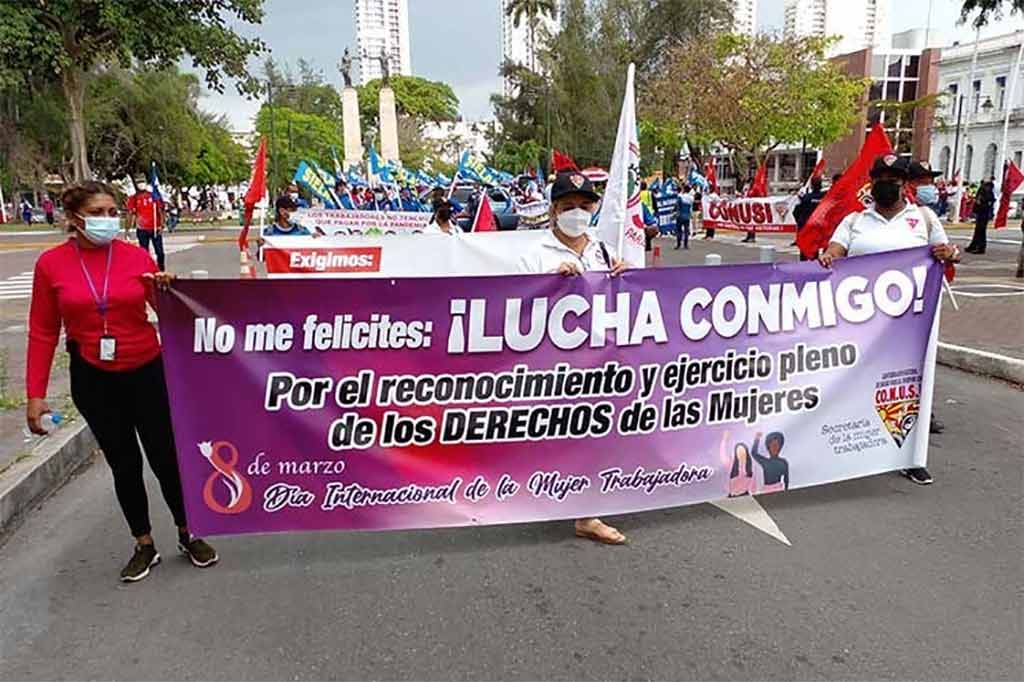Panama City, Mar 8 (Prensa Latina) Panamanian women will remember today the International Women’s Day with demands at the National Assembly (parliament) on the need for legislation to ensure decent work and equal opportunities.
According to Professor Nelva Reyes, from the General Autonomous Workers Central of Panama, it is vital to support women who are heads of households, because they are the ones who guarantee food and education for their children.
In this sense, she denounced that in order to get a job in the labor market, they are asked to provide a pregnancy test and a certificate of salpingectomy, both in the public and private sector.
Reyes explained to the TVN news channel that these situations occur because there has been a systematic discrimination, when decision-making is covered by men. In her opinion, women in Panama face three major challenges: access to decent jobs and salaries; violence and feminicide; and better educational opportunities, especially in the indigenous, peasant and poor sectors of the country.
In this sense, she called for the promotion of public policies to prevent violence against women, as well as the establishment of campaigns to warn about the problem.
On the same issue,former congresswoman and former independent presidential candidate in 2019, Ana Matilde Gómez, pointed out the importance of women’s participation in politics to become visible in quantity and quality, especially in what they could contribute to national development, as an instrument of transformation.
According to official statistics, women in Panama represent 50.4% of the population, but when we look at their participation in decision-making positions, whether by popular election or appointment, a marked inequality can be observed, she said.
A study carried out by the United Nations Development Program (UNDP-Panama) states that the regional average of women in decision-making positions is 28.5 percent, but in Panama they only occupy 25 percent. According to TVN, since 1945, when they opened the doors to women’s suffrage, some 58 women have managed to over seats in the Legislative Body. There are currently 17 women out of 71 deputies.
jrr/jav/mem/ga.










